This post has been medically reviewed by Dr. Sarah Mathis, D.O.
Whether you have just started trying to conceive naturally, or you have been diagnosed with “infertility” and are considering assisted reproductive technology like IUI, IVF, or other options, research shows that maintaining a healthy fertility diet can dramatically up your chances of pregnancy success. Well, it turns out that narrowing in on some specific nutrient macros, i.e., the amount of fats, carbohydrates, and protein you eat, can significantly boost egg health. In this post I talk about the research on the fertility diet, including a very exciting study that gives us some actual numbers to work with!
Please remember, that I am not a doctor. I am a woman who struggled with infertility, researched like crazy, and worked very hard to fix my hormones and get pregnant (twice!). YOUR perfect fertility diet will be different than mine, because you are a different person!
Want to skip to the end? Here is a sample day of meals hitting these fertility macros.
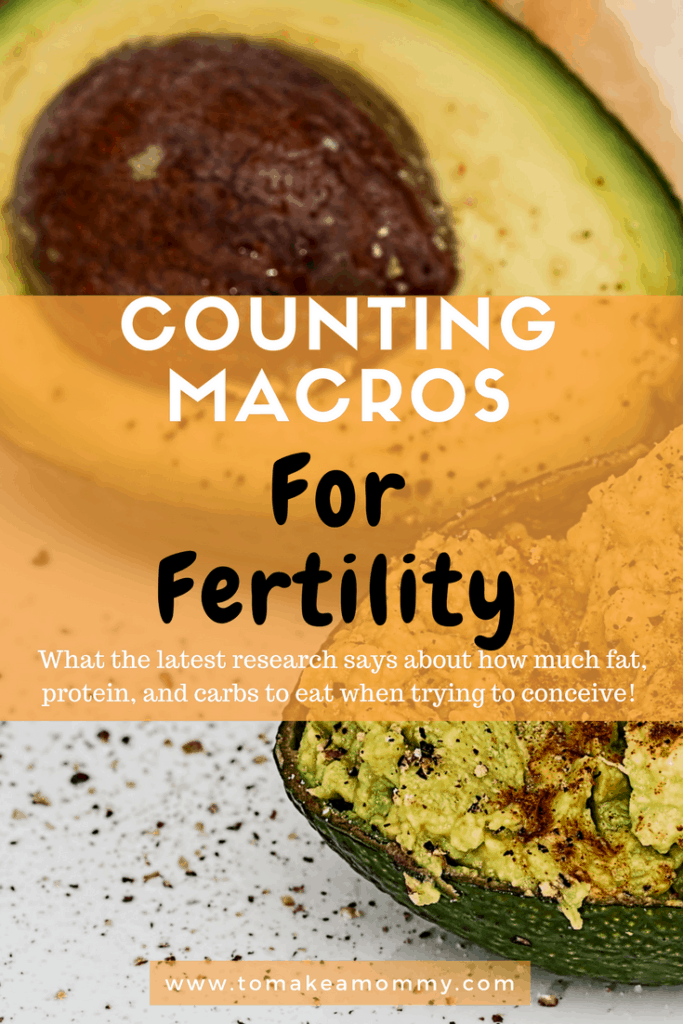
Table of Contents
Optimizing the Fertility Diet with Macros
If you are as Type-A obsessive-compulsive as I am about your fertility journey (and everything else in life), you probably go crazy when you read about perfect fertility diets but there are no NUMBERS to help you figure out EXACTLY what you are supposed to eat. I’m guilty of writing in generics myself, because neither the research I’ve done previously, nor the diet I used to get pregnant with my first miracle included any kind of counting of calories or tracking of carbs, etc. So I just give general advice- eat this, don’t eat this, eat this in limitation, etc.
The problem with this approach is that it turns out that no matter how much we try and how much we think we are eating “healthy,” we are probably eating WAY TOO MANY CARBS for optimal fertility. Luckily we finally have some new guidance to help us figure out how many of each macronutrient- carbohydrates, protein, and fat – we should be eating.
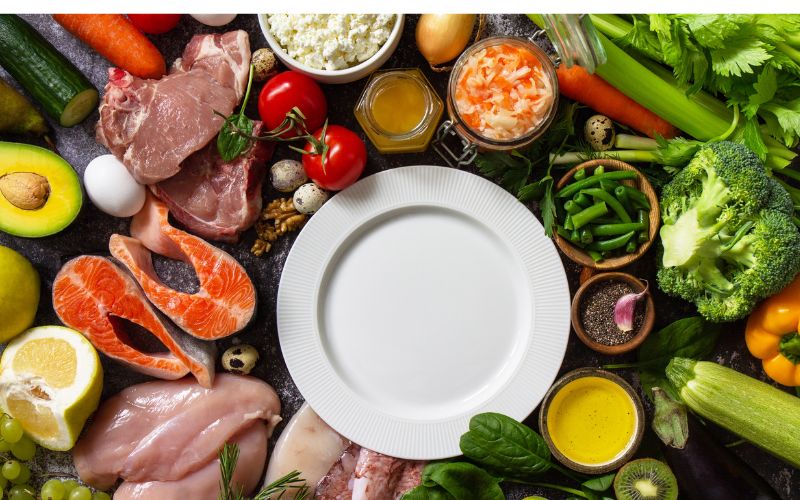
The Major Fertility Diet Research- The Harvard Nurses Study
When I was first trying to conceive I followed the basic guidelines of the only major and well-respected fertility diet research study- the Harvard Nurses Study. Their research studied only women with anovulatory infertility (meaning the patients were having a hard time getting pregnant because they weren’t ovulating). Their results were the general fertility diet you see in most books, blogs, etc.: eat more plant protein (lentils, beans, nuts, etc.), and less animal protein, avoid trans fats, choose slow carbs (brown rice, quinoa, etc.), limit quick/simple carbs (sugar, white rice, juice, pasta, white bread), choose high fat dairy over low-fat, and limit alcohol and caffeine. They even wrote a book about it- you can get it at Amazon here: The Fertility Diet. I find it funny that they have peas in a pod on the front cover- yes, it’s cute, because it is a metaphor for pregnancy, but also peas might hurt fertility, so, you know– haha. Sorry, I digress.
Back to the story-
The Fertility Diet that Worked For Me with Diminished Ovarian Reserve
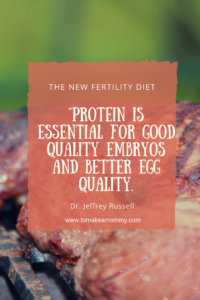
Unfortunately, this diet didn’t work at all for me. It was too general, and loosy-goosy. After several early losses (chemical pregnancies and early miscarriages), the diagnoses started rolling in- endometriosis, High FSH, low AMH, Diminished Ovarian Reserve, and MTHFR mutation. I seriously needed to UP MY DIET GAME to get pregnant.
I started researching, reading, consulting with fertility coaches like Julia Indichova, and getting advice from my Traditional Chinese Medicine practitioner (aka, my acupuncturist). I cobbled together a diet that was perfectly tailored for me, and in under three months I was pregnant with my miracle child. I stopped doing the “limit” nonsense and completely eliminated caffeine, alcohol, sugar, sweeteners, quick/white carbs, trans fats, soy, and all processed food. I also eliminated dairy and all raw/cold foods per my chinese medicine diagnoses and personal dietary needs. I consumed lots of organic veggies, eggs, legumes, whole grains, seaweeds, and healthy fats, and a moderate amount of organic meat. You can read all about the diet I followed here, and about how you can tailor a perfect diet for you here. I also did many other things during those three months, and you can read about all of them here.
I lowered by FSH, and got pregnant, with extreme discipline to this extreme diet.
And, then again in 2017 I repeated these efforts and got successfully pregnant in three months again. Although this time I incorporated the changes suggested by the research from Dr. Russell I talk about below.
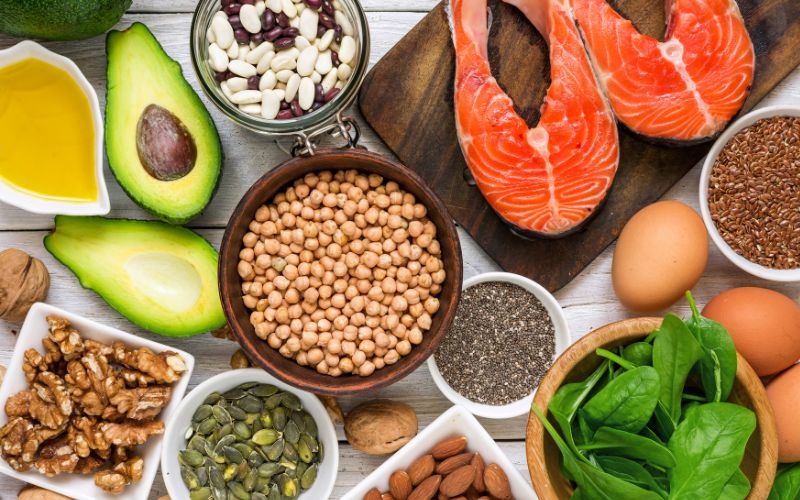
The “New” Research on Fertility Diet and Macros
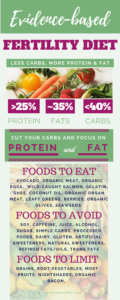
Dr. Jeffrey Russell of the Delaware Institute for Reproductive Medicine noticed something interesting. He had plenty of young, healthy, fit women who had great BMIs (body-mass index), and yet had recurring failed IVFs because of poor egg and embryo quality. Although they seemed healthy- they were making terrible eggs. They reported eating “healthy,” but he asked them to track their diets. It turns out that most of them were MOSTLY eating carbs- oatmeal for breakfast, a sandwich or pasta for lunch, then rice for dinner with some meat and veggies. Many of these women were eating 60% carbs for their diet, and less than 10% protein.
So, they decided to ask them to eat more protein and fewer carbs and continue to track their diets. What they found was astounding– once women hit the threshold of 30% or more protein, and 40% or less carbohydrates, they had FOUR TIMES the pregnancy success rates of those who ate more carbs and less protein. FOUR TIMES.
The change actually started at 25% protein consumption- that is when a reversal in egg quality and embryo development. Once they reached 35% or above for protein they saw a peak in blastocyst development and pregnancy rate. So, going over 35% protein produced no further positive results.
If that doesn’t blow your mind, I don’t know what else will. Here is his research published in the journey Fertility & Sterility. Here is a great podcast with him where he explains his study and findings. Dr. Russell now REQUIRES his patients to eat 25% to 35% protein and less than 40% carbs for THREE months before he will even allow them to begin their IVF cycles.
So, we’ve learned something very, very clear here- make sure you are eating between 25% and 35% protein. You can get this from organic meat, organic eggs, wild-caught salmon, gelatin, organic organ meat, beans, nuts, lentils, etc.
Here’s the thing- When I do the calculations for the diet I was following when I got pregnant the first time- I was just about hitting that ratio exactly (hovered around 25% protein)! To get to 35% protein the second time I had to up my meat intake, and add in daily bone broth.
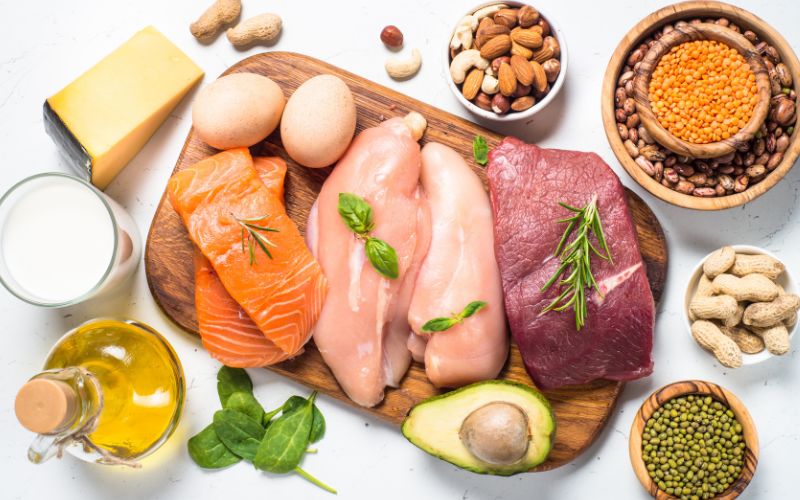
Fat, Fertility, and the Fertility Diet
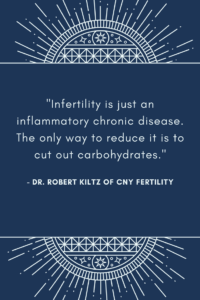
So, the whole time I am listening to Dr. Russell’s podcast and he keeps talking about the importance of protein, I keep waiting for him to talk about fats. Why? Because there are only three “macronutrients” that make up our diets- carbohydrates, protein, and fats. Many people who are trying to lose weight decide to count these instead of calories. These three “macros” add up to 100% of your diet. So, for Dr. Russell’s report he forgot to mention that component- >25% protein, <40% carbs, ~35% FATS.
So, no matter what you want to be ensuring that around 35% of your diet is from healthy fats- AVOCADO (I eat one a day!), organic meat, organic eggs, wild-caught salmon, gelatin, ghee, coconut oil, coconut butter, nuts, extra virgin olive oil, organic organ meat (like liver), and organic olives.
Here’s the thing- Dr. Russell’s research didn’t play at all with varying those protein and fat levels- nor with dropping carbs below the 40% mark. So, should you actually be eating FEWER carbs and MORE fat?
Dr. Kiltz of CNY Fertility Center thinks you should. In fact he thinks you should eat 80% fat, 15-20% protein, and only 0-5% carbohydrates. Crazy, huh? Well it certainly sounds crazy, until you start listening to him.
Dr. Kiltz asks his fertility patients to stick to a “Bacon, Eggs, Butter, and Beef” diet. Sounds delightful, doesn’t it? It is basically an extreme version of the ketogenic (or “keto”) diet that has been found to help a number of health conditions including multiple sclerosis and PCOS. In fact Dr. Kiltz shares the whole study on keto improving polycystic ovarian syndrome on his website here. Here’s Dr. Kiltz’s written explanation of why Keto works for fertility and overall well-being, and here is a terrific interview with him talking about it.
Carbohydrates, all of them, stimulate fat production, insulin and inflammation that’s primarily the cause of metabolic disorders like PCOS, diabetes, and all the other chronic diseases. Infertility is just an inflammatory chronic disease. The only way to reduce it is to cut out carbohydrates. Your body requires fat and protein and it doesn’t require any carbohydrates.”
Dr. Kiltz believes that inflammation from our foods- and primarily carbohydrates- is literally killing us. He also believes the DNA damage is reversible by switching from a high carb to a high fat diet. He thinks that this diet is the most important for women with a history of miscarriage, chemical pregnancies, or failed IVF cycles. In addition to bacon, eggs, butter, organic grass-fed meat, coconut oil, fish oil, and your daily avocado, he recommends taking MCT oil (Medium Chain Triglycerides). If you are interested, here is the only MCT oil available that is fully organic.
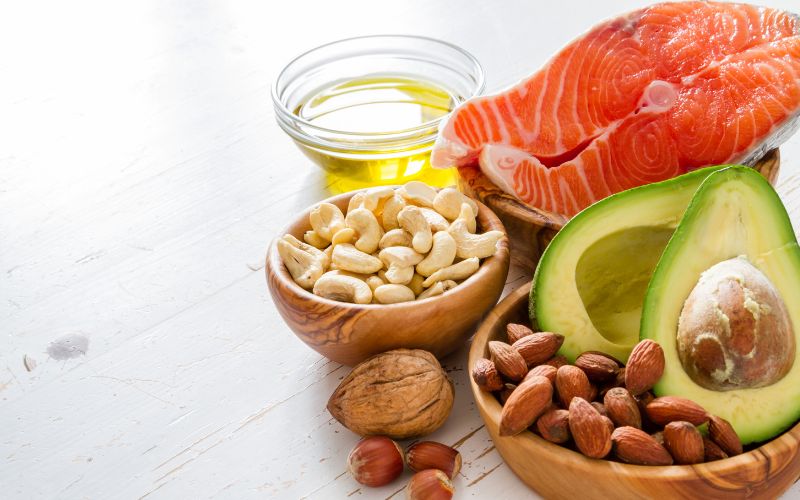
The Optimal Fertility Macros
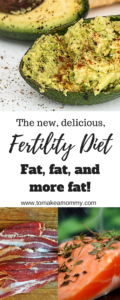
So, what are we supposed to do, Anna?
Okay, we know for sure we need to reduce carbs to under 40% of our diets AND those carbs NEED to be good, healthy, slow, complex carbs– brown rice, quinoa, lentils, beans, and carbs from high-nutrient veggies and low-sugar fruits like berries.
AND we should PROBABLY be hitting a solid amount of protein- 25-35%. The rest my friend, how much further you reduce your carbs and up your fats– the rest is up to you!
Here’s what I’m doing– I am basically sticking to my original diet plan (the one that got me pregnant three years ago), but I am gently upping my fats and reducing my carbs. For example, I’m not cutting out any green veggies or berries, but I am reducing the amount of brown rice and quinoa I’m eating.
I’m not cutting out lentils, beans, or nuts, because they have all been shown to be great fertility foods, and more importantly THEY MAKE ME FEEL GOOD. The most important thing is that you feel good. I’m also continuing to avoid all dairy, because despite Dr. Kiltz’s persuasive talks (he advocates for some dairy), I know that dairy makes ME sick, so its just not worth it.
Update: Here is a sample day in my life of hitting these macros!
Based on this research, what are YOU going to do?
Update: By the way this macro diet totally worked to help me get pregnant with my second miracle.
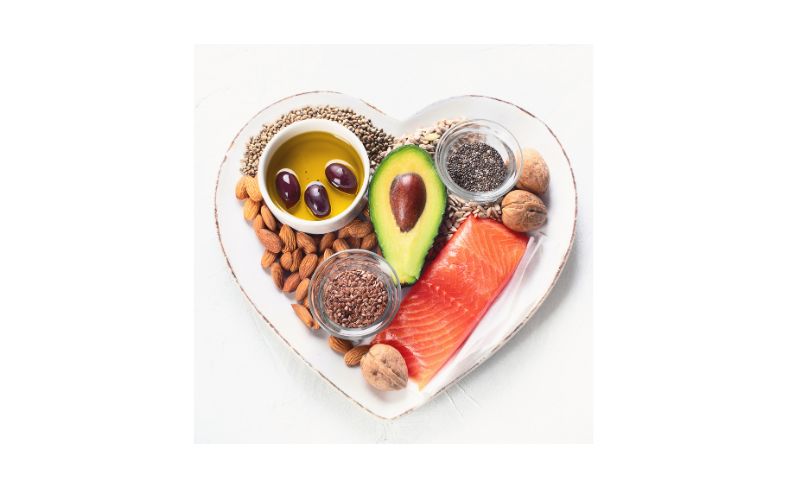
HOW DO I COUNT MACROS FOR FERTILITY?
Okay, okay, you’ve reached your limit of information and want an action plan! Here is is in 5 simple steps.
- Decide what macros you are going to try to hit. To start, try Dr. Russell’s minimum recommendation-25% protein, 40% carbs, 35% fats. If you’re feeling fancy go with 35% protein, 30% carbs, 35% fats.
- Get some kind of an app that tracks macros. If you have a Fitbit (and I hope you do) then you can actually track your macros right in the Fitbit app. If you don’t have a Fitbit you can download the free MyFitnessPal app or just use their website. They will try to trick you into thinking that you need the paid version for macros, but you don’t, you can do it in the FREE version.
- Start inputting every single thing you eat. Both Fitbit and MyFitnessPal have a wide range of foods and recipes that have already been input so it should be easy to search and put add it to you daily food diary.
- Before dinner, go and check your macros. Are you where you need to be? If not, what do you need to eat for dinner to get into your perfect macro zone?
- Do this for at least a few days before you figure out what foods you need to eat- and not eat to hit your macros. If you are like me and you hate tracking things, you can then stop and just keep up that general diet. If you NEED TO KNOW and keep track of EVERYTHING, however, you can actually do this every day to make sure you are hitting the right ratios.
Have I blown your mind? I hope so, because all of this totally blows my mind. Let’s go, eat, and get pregnant, ladies!
Citations
Does changing a patient’s dietary consumption of proteins and carbohydrates impact blastocyst development and clinical pregnancy rates from one cycle to the next? Russell, J.B. et al. Fertility and Sterility , Volume 98 , Issue 3 , S47
Want to get pregnant fast?
Love lists? Me too. Grab my 79 Things I did to transform my life and get pregnant in less than 3 months after 2 years of infertility and miscarriages! Totally free!
Anna Rapp is a fertility journalist and non-toxic living expert. When Anna Rapp was struggling with infertility and recurrent early miscarriage, she was diagnosed with diminished ovarian reserve, High FSH, low AMH, low follicle count, endometriosis, and an MTHFR mutation. Despite being told donor eggs were her only solution, Anna used her graduate training in research methods and analysis to read everything she could find on fertility and egg health. Ultimately, she lowered her FSH and got pregnant naturally (twice). She blogs about how she did it and encourages her readers to take charge of their fertility journey and get happy, healthy, and pregnant!
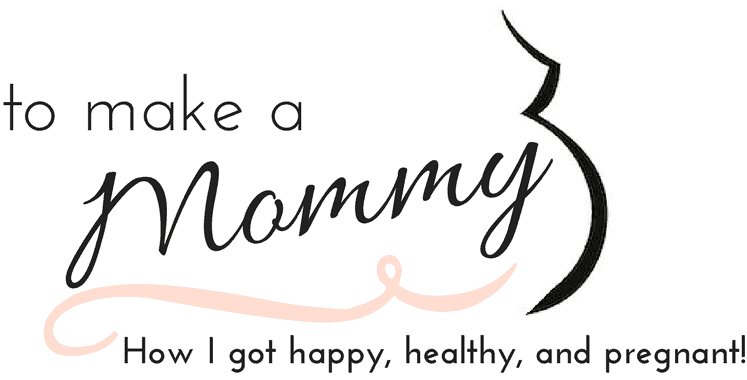

Can you tell me what’s normal day of meals looks like you for you? Like your breakfast/lunch/dinner/snacks..
Cassy,
I have been asked this so many times since I published this post!! I am working on a sample daily diet with recipes and will hopefully have up this week! Make sure you subscribe to the newsletter so you get the updates!
Anna
Hello, I saw natural sweaters where in the list of items to avoid, does this mean Stevia is one of them. I put them on everything.
Thank you.
Wow…just wow. So much information! THANK YOU! My husband and I have been trying for 7 years without a single pregnancy, I have PCOS and he has a low sperm count. Treatments didn’t work, naturally hasn’t worked…but your post has made me super excited to keep trying and to try eating with guidelines. I do have one question though, would this type of eating be beneficial for my husband as well? Thank you!
Hi Paula!
You are so welcome!! 7 years, whew, you go girl!! So, I think it all depends on what is going on with your hubby. Since he has a low sperm count he’s probably out of balance in some way, but the diet discussed in this article is for EGG health- I haven’t written a blog post yet on the evidence behind sperm health. In general, its a whole foods, organic diet. For many men meat, dairy, low carb, and tons of green veggies are good– but of course some men are intolerant to dairy. My husband eats a mostly protein & fat diet, with sprinkles of good complex carbs mixed in, but he doesn’t have any special needs we have to factor for. I’ll put writing a blog post on the male fertility diet on my to-do list! Baby dust!
Anna
Two words……THANK YOU!!!
You are SO welcome my dear!
After reading the beginning I would think you were eating more keto (high fat, moderate protein, low carb) but then your macros are 35%/35%/30%? That not exactly low carb? I’m confused
MR– Good point. So– the point is that we have one research study that says carbs only need to be under 40% daily intake BUT we have another “expert” advocating for Keto. When I tracked my personal macros I was at around 35% protein/50% fat/ 15% carbs so totally keto. But there is no evidence to back that up, only doctors saying it works. Does that make sense? The science only supports the protein 25-35%, and carbs under 40%.
Yes thank you!! I tracked my macros yesterday and I was about 50% fat and it seemed so high, so I’m glad it’s ok. Also curious how you feel about using erythritol to keep sugar down
Or Stevia or Monkfruit?
Remember you should really be paying attention to how the diet makes YOU feel. A keto-type approach may work well for many women, but it might not for YOU. So pay attention to your health and how you feel!
Personally I avoided all sweeteners including erythritol, stevia, and monkfruit! I even avoided bananas and dates. I know I’m crazy but within one month I lost my craving for sweets!
Hey Anna,
You mentioned that when you were trying to conceive you did 35% protein/50% fat/ 15% carbs.
I am going to do 30% carbs, 35% protein, 35% fats. Do you think that those are good numbers or based in your experiences and others your numbers are better for trying to conceive?
Did you change your macros at all during the two week wait?? Thanks!
Hi Elisa! I did not, because I figured I was doing a 90-day egg health journey, and wanted to be eating right for the next cycle!
I went to dr. Russell himself. I’d been doing his high protein, low-carb diet with an intended BMI target of 22-26 (I’m normally closer to 19) for about 2.5mo when I went in for my consultation. my amh was $50k in failed ivfs, 4 docs, multiple recommendations to “consider donor eggs” … you actually gave me the biggest chunk of good advice. please accept my sincere thanks.
other notes:
– dr. Russell basically said the core of his philosophy was low carb. he was using protein and fats to get the carb # down. realistically getting 35% of healthy protein is really tough (it’s v filling), so that’s where the fat portion settled out.
– I’m still eating plenty of dairy. I needed the whole milk and eggs to get the calorie and protein counts up.
– I do lots of less naked whey chocolate shakes to get the protein up.
– I’m trying to minimize the plastics, but I’m still using good ol’ oil of Olay and probably have parabens in places I don’t even realize. only so much of my house I can detox.
– I did acupuncture throughout all those abnl embryo cycles. I’ve kept going, if anything b/c I enjoy a good snooze.
– I’m a doc too. you can imagine how humbling (and scary for patients) that the western medical profession knows so little about food, and it’s the one thing patients can control. to think of all the bad/incomplete advice we give!
Irene,
Thank you so much for sharing! So interesting that its really about the low carb and not the high protein. I actually asked Dr. Russell about that in correspondence but didn’t get a response. Yeah, dairy makes it way easier, but I can’t tolerate lactose or casein, so no luck for me (and many women) there!
And, at least Dr. Russell gives advice. All my doctors would say is, “eh, just eat healthy!”
Baby dust!! Hope to hear your miracle story!
Anna
Thank you for all the information on your site! Fitness Pal is saying I can’t track macros without the Premium version.. how do you get around that?
Kelly,
It was a sneaky page in the app! I think this website explains how to do it all :https://healthyeater.com/iifym-myfitnesspal-tutorial
Hope that helps!!
Anna
Hi Kelly!! Here’s a site that explains how to do it: https://healthyeater.com/iifym-myfitnesspal-tutorial
Hope that helps!!
Anna
Thank you so much for your response! Happy New Year!
Hi Anna,
What do you think about the paleo mindset that complex carbs like grains and legumes cause leaky gut and autoimmune issues? Do you consume starches like sweet potatoes/yams?
Hi Christina!
I’m a big believer in bioindividuality, meaning that we each truly have different needs and responses to different foods. Do grains and legumes cause leaky gut and autoimmune issues? Yes, probably, for SOME people SOME of the time. I don’t think they cause those for ALL people ALL of the time. Does that make sense? If you want to dig deep and figure out EXACTLY what foods work for you and what don’t, then you can’t beat a really strict elimination diet with slow re-entries of foods like the Auto-Immune Protocol Diet. I’ve never done it, but its the best if you are really struggling.
Yes, when ttc I eat sweet potatoes and yams but I limit my serving size. So maybe 1/4 or 1/2 cup once per day, and not every day. I personally also eat whole grains like brown rice, but also, with limited servings sizes. I think its a mistake to depend on sweet potatoes for your meals (the way many paleo recipes do) because you’re going to wind up with too many carbs! But, I’m not a dietitian, doctor, etc., just a girl who googles very, very, very, quickly, and is obsessed with all things fertility!
Baby dust!
Hi. Thanks very much for this article. I am really struggling to get my protein anywhere above about 25%. My carbs are always far under 40% but the rest is made up with fat. I eat alot of lean meat, nuts, seeds and avo which seems to really quickly up my fat intake. Do you think this is okay or are their risks with getting too much fat?
I think you are probably fine. I wouldn’t worry about too much fat. The key to all of these diets is low-carb. But, if you can add in a little straight protein its probably worth it!
The real question is- how are you FEELING? Are you energetic, skin glowing, good digestion, etc.?
I have always tracked macros
But now doing ivf- wondering if I need to increase my intake- alreAdy had one fial
You don’t mention exercise- this is. Big factor in fertility. Any suggestions for macro calculators?
Hi, Anna, I tried emailing you a couple of times, but both messages bounced, so I have no choice but to post my questions on your blog. Maybe they’ll help others, too. They’re not on the diet topic, but not all your pages have comment boxes; this is the first page I found that did, so sorry for being off-topic. 🙂 I’m slowly working my way through the various products at home that need replacing. Regarding oral care: if I use regular, unflavored dental tape, is that ok, or is it still no good? I find regular floss doesn’t work for my receding gumline. As for mouthwash, is Listerine’s natural product ok? It’s a fraction of the price of other SLS-free products. Finally, I need to use a night guard because of grinding. Of course, it’s made of plastic. Don’t think I have any options there, right?
Also, is an oil-cloth tablecloth ok, or is it like the shower curtain? Or if they’re made of polyester, not plastic, is it not an issue?
Thanks for your time and all your hard work, J.
Sorry lady!! I am so behind! There are some good non-toxic flosses like Dessert Essence and Dental Lace (which I use). Not sure what works for receding gumlines! Personally I just don’t use mouthwash, but if you want to you will need to check all ingredients and see if its okay!
I have no idea about options for a night guard!! Just give that up to God for sure!
So, I would think a polyester tablecloth wouldn’t offgass anything, but why not use a nice cotton one and wash in the washing machine?
Again, sorry for my huge delays!!!!!! xoxo baby dust
Hi!
I love reading your blog- I’m actually obsessed! What about eggs as a lean protein in your diet? Yolk and whites included.
Hi! Thanks for all the information. I was wondering if men should also be following this? I’ve been trying for 2 years and it appears to be unexplained infertility.
Hi Anna, Could you please advise where the sample daily diet with recipes is located pls?
Also thanks so much for all this info! xx
Hello Anna,
Your blog is awesome, a wealth of information. One question. I am not a hardcore meat consumer. I am struggling to keep carbs below 40% by eating pulses and legumes. My body is very good with dairy. But, my fat intake is becoming very high with yoghurt, halloumi & some milk a day. I am eating a lot of egg whites & Avocados and still not able to reach the macro goals. Any suggestions? I think it is a big no to proteins like Soya.
Thank you!
I can’t find any concrete answer as to whether or not MCT Oil is safe to consume while trying to conceive. I keep running across articles that day a diet high in saturated fats can cause an increase in infertility. I would like to see a study that it helps or doesn’t help, either way, if you could link it.